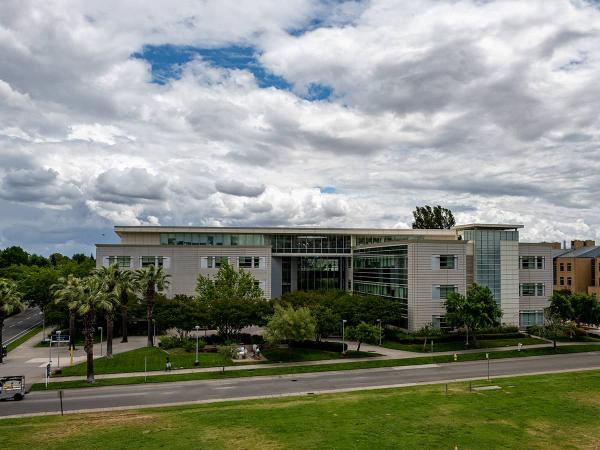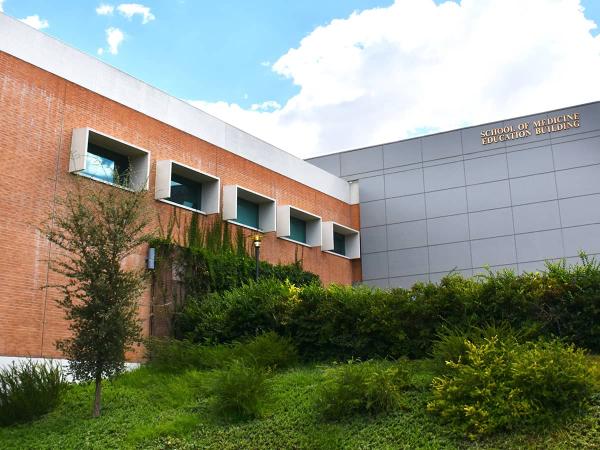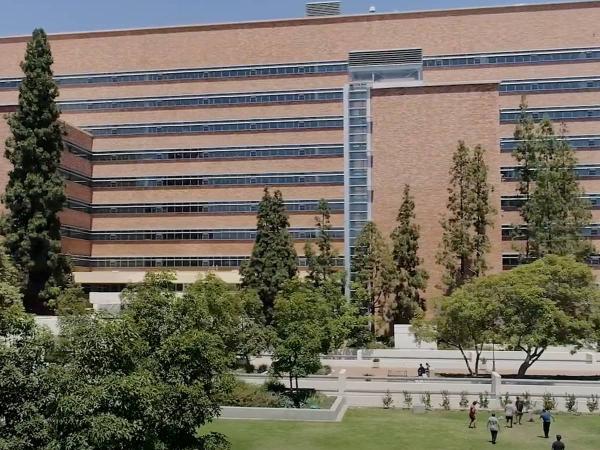The six medical schools of the University of California combine academic rigor with hands-on clinical experiences. They prepare graduates to succeed in fields that are continually advancing.
Our Schools of Medicine train students to become the next generation of doctors at a time when health care providers are in high demand. But they do much more than that. Our educational curriculum and field experiences address some of the most pressing questions in health care and our society.
UC schools ask you to tackle inequity, disease prevention and the health effects of a changing climate or a life in poverty. They ask—and expect—you to change the seemingly impossible into possibilities for all Californians and beyond.
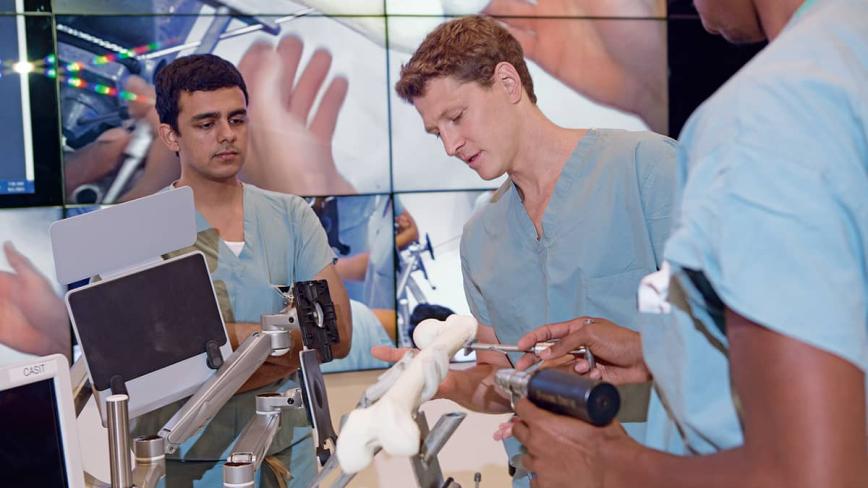
Becoming a Doctor
Graduates earning an MD typically complete four years of medical school and three or more subsequent years in a residency program accredited by the Accreditation Council for Graduate Medical Education (ACGME).
The residency match rate for UC schools of medicine graduates exceeds 97 percent. More than 65 percent of our graduates match in California residency programs, and more than 30 percent match at a UC hospital or program.
Leading California — and the Nation
Our medical schools are among the best in the U.S., according to U.S. News & World Report.
As part of our responsibility as health care leaders, we seek to build a workforce of future physicians that reflects the diversity of our state. We’re not there yet. But we see this challenge as part of UC’s ongoing effort to serve California. And like so many challenges before, we will rise to meet it.
UC Davis
Tier 1 Medical School – Primary Care
Tier 2 Medical School – Research
UC Irvine
Tier 2 Medical School – Research
Tier 3 Medical School – Primary Care
UCLA
Tier 1 Medical School – Research
Tier 2 Medical School – Primary Care
UC Riverside
Tier 3 Medical School – Primary Care
Tier 3 Medical School – Research
UC San Diego
Tier 1 Medical School – Research
Tier 2 Medical School – Primary Care
UCSF
Tier 1 Medical School – Primary Care
Tier 1 Medical School – Research
Our Schools of Medicine
UC Schools of Medicine offer opportunities to meet the challenges of our state’s most vulnerable communities. Our UC PRIME (Programs in Medical Education) programs supplement standard medical student training. They offer additional curriculum to prepare you to serve people who have not had regular access to quality medical care.
UC Davis School of Medicine
UC Davis offers hands-on patient care opportunities at community health clinics; a curriculum reflecting key societal issues (e.g., doctor-patient communication, ethics, clinical reasoning, cultural competency, etc.); and a Community Health Scholars program to train future physician leaders to serve California's rural, urban and agricultural communities; and dual-degree programs.
UC Riverside School of Medicine
UC Riverside focuses on training for medical specialties with significant shortages, including family medicine, obstetrics and gynecology, psychiatry, pediatrics, general surgery, and internal medicine. Students and residents are immersed in community-based health organizations, many of which serve populations living in extreme poverty.
UC San Diego School of Medicine
We work within and across departments to translate new discoveries from our laboratories to our patients. This collaboration includes the Moores Cancer Center, Altman Clinical and Translational Research Institute, and schools of pharmacy and engineering. UC San Diego SOM also offers dual MD/PhD programs in medical scientist training and bioengineering.
UCI School of Medicine
UCI School of Medicine in Irvine, California, has 24 departments, from basic science research to clinical medical and surgical specialties. It has research, clinical and teaching relationships with the VA Long Beach Healthcare System and Long Beach Memorial Medical Center. UCI also offers dual degree programs and opportunities for enrollment in several mission-based programs.
UCLA David Geffen School of Medicine
UCLA School of Medicine clinical departments are an integral piece of clinical care, research and education. Our close proximity to the UCLA medical centers in Los Angeles and Santa Monica, neuropsychiatric hospital at UCLA and UCLA Mattel Children's Hospital offers students and trainees a unique educational experience. UCLA receives over a billion dollars a year in competitive research awards.
UCSF School of Medicine
UCSF School of Medicine has 28 academic departments, eight organized research units and six interdisciplinary research centers. UCSF SOM is ranked first among U.S. medical schools in National Institutes of Health dollars awarded. Our outstanding faculty include five Nobel laureates, 100+ National Academy of Medicine members and 17 Howard Hughes Medical Institute investigators.
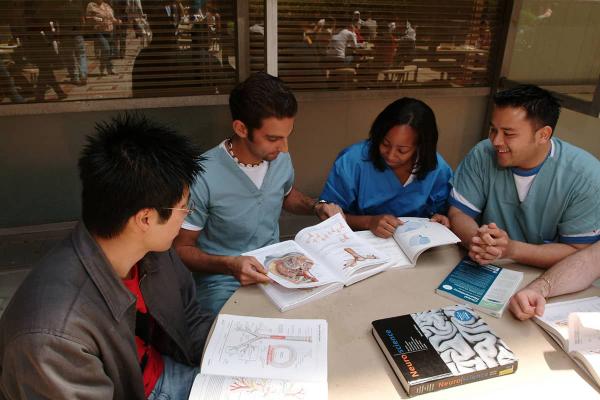
Starting a Health Career at UC
University of California Health is the state’s fourth largest health care delivery system and integral to the state’s health care safety net. Our academic health centers are ranked among the best in the state and nation. As the nation’s largest academic health system, our medical students have many opportunities to advance their career within the UC family.
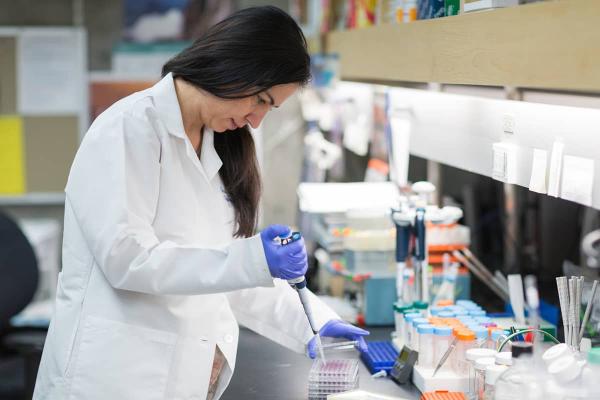
Using Research to Inform Patient Care
Using research to improve patient care feeds our passions and our excellence: UC performs nearly 10 percent of all academic research funded by U.S. federal agencies each year. We are typically awarded one in seven National Institutes of Health grants. Medical students at UC schools have the opportunity to participate in ongoing research projects as well as start their own.
See how University of California Health is challenging the status quo through innovative research


